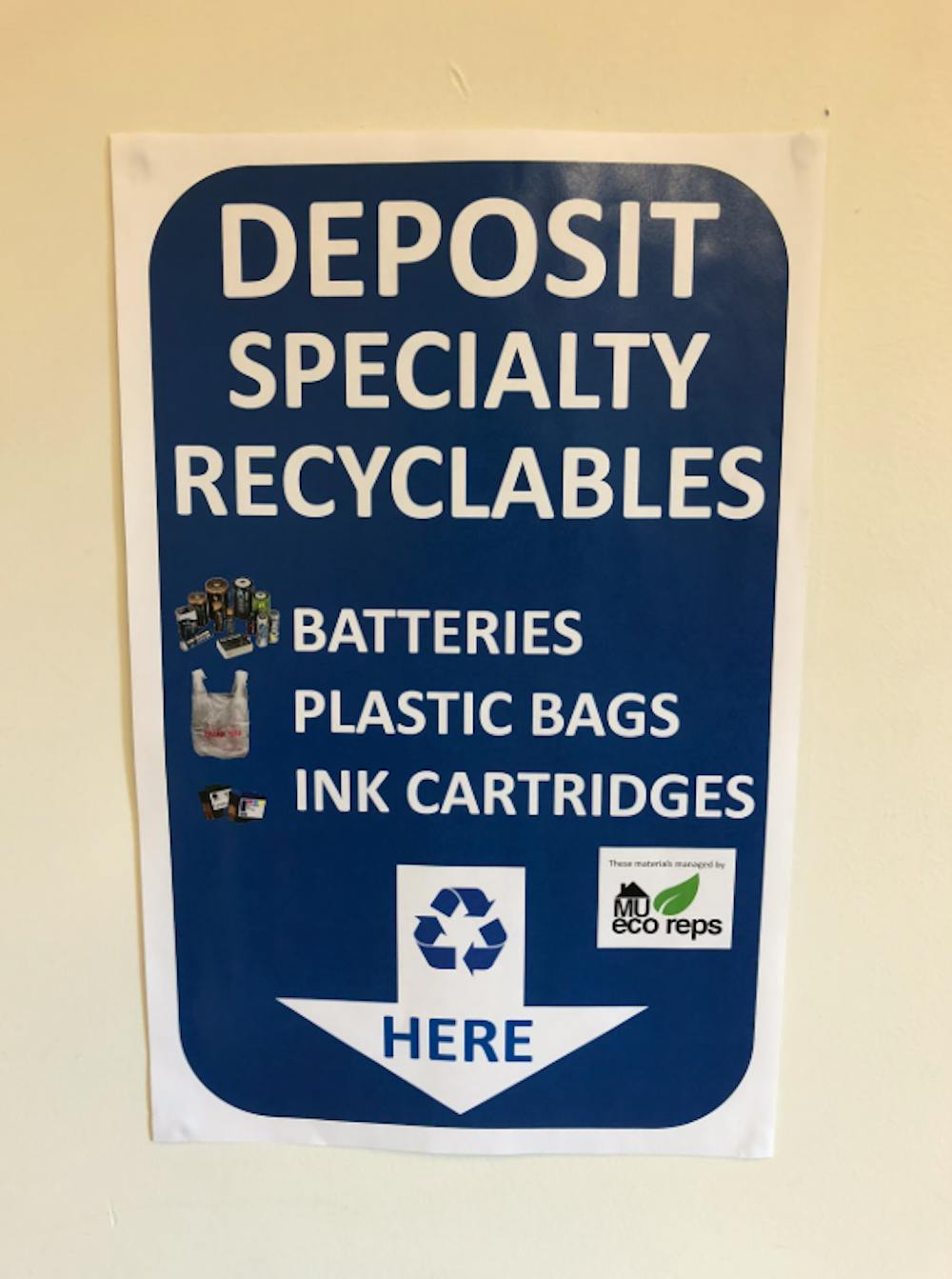By: Sofia Liszka
Not all recyclables are treated equally. While this statement may seem as obvious as the difference between cardboard and aluminum, it’s more complex than that, even going beyond the numbers that mark the bottom of our plastics. Miami University’s EcoReps have taken it upon themselves to better the recycling habits of campus residents with their Specialty Recycling Program, a project that targets the waste generated here on campus every day.A need for action became apparent as EcoReps, green-minded students in each Miami residence hall, noticed objects like batteries, ink cartridges and plastic bags in mainstream trash. These were items that EcoReps knew could be recycled. After some investigating, the club found that from a business standpoint, the area’s waste management facility, Rumpke Waste and Recycling, was unable to recycle these products. Because of this, EcoReps decided to take action.Regarding batteries, though, it is worth noting that leading battery companies like DuraCell have adjusted their battery composition to allow for safe disposal with mainstream waste around the country (with the exception of California). However, these companies do explicitly advocate for disposal through recycling programs, a practice reflected in the work of Miami’s EcoReps. EcoReps president, Erika Jeffers, describes the club’s response as a desire to “fix the problem before the trash ever left campus”. With that goal, the EcoReps equipped campus residence halls with battery recycling boxes. Soon, however, the initiative ran into a problem. Through the club’s biweekly trash audits, whereby EcoReps sift through one day of each hall’s trash to calculate the amount of wrongly disposed recyclables, members continued to find significant amounts of plastic bags, batteries and ink cartridges. Despite this challenge, EcoReps emerged with the creation of a different disposal system, one that is now in its third year of operation here on campus. Each residence hall has a labeled Specialty Recycling Bin from the EcoReps, a place to put all plastic bags, batteries and ink cartridges. The contents of these bins are then rerouted by EcoReps: plastic bags are taken to the local Kroger, and batteries and ink cartridges are taken to correct waste containers set up by Dr. Adam Sizemore, Miami’s Director of Sustainability, in certain academic buildings on campus.There are ways for those who live off campus to responsibly dispose of specialty items as well. Plastic bags can be taken to Oxford’s Kroger, where there is a drop-off in the entryway, and at Walmart, where there is a drop-off in front of the store’s registers. Batteries can be disposed of in the tower located on the first floor of Shideler Hall. Additional questions about the University’s battery recycling system can be directed to Dr. Sizemore and Miami’s Sustainability Coordinator, Kelsey Forren. Since this change, Jeffers says that there has been a “tremendous improvement” in results. The EcoReps have delivered noticeably higher amounts of plastic bags and placed more batteries and ink cartridges to the designated areas on campus. These results are a true success for the club, campus and our environment. Regarding the future of the project, Jeffers and EcoReps members plan to “continue to inform students of the speciality recycling bins in their trash rooms in order to further drive the project forward”. And as the producers of these misplaced recyclables, we students have a direct impact on the future success of the program. It’s our responsibility to spread the word and use these bins: go tell a friend and put your specialty recyclables where they belong.Photo by Sofia Liszka.

